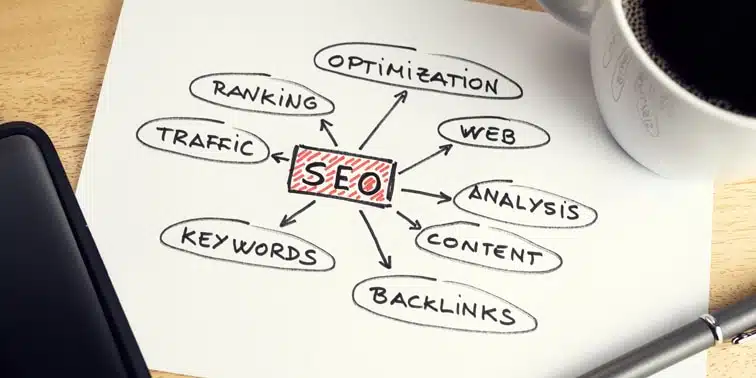Improving your website for Google doesn’t have to be difficult, it just takes a few steps to begin with. If you want more traffic on your website then it’s important to ensure that Google can crawl and index the pages of your site quickly. The faster the bots can do this, the higher you’ll rank in search engine results pages (SERPs). So here are 10 easy ways to improve your website for Google and get more web traffic:
- One of the most important factors in getting a high ranking on Google is having a high-quality site structure. This allows search engines to crawl and index your pages quickly and easily. Links should go straight through from one page to another. Avoid just using “click here”, say what that link is for so as not to confuse the bots, they need to know where you want them to go next.
- Every page on your website should be crawlable and indexable by Googlebot, so it’s important than you don’t block pages with JavaScript or CSS styling. Google may not be able to crawl your site properly if it needs JavaScript, so you may lose visitors.
- Use crawlable URLs that Google can read and index.
- Give your web pages descriptive and relevant keywords in file names and your site structure, this makes it a lot easier for you to find the relevant page faster and also very helpful for bots as they can see what’s on a page at a glance.
- Off page factors such as social signals and inbound links can influence your website’s rankings on Google, so make sure you focus on these when trying to improve your site for Google. Social signals are a great way of showing Google which pages with content people like and trust the most, this helps boost your page rankability. Make sure that your website is on as many social media sites as relevant to your business, but don’t spam with your followers with updates.
- The more frequently you update your website the better it will be for Google and its crawling bots. Not only does this keep Google from dropping your ranking, but it also keeps you in front of a target audience who are potentially looking for your services or products. You want to be the first one they see when they search their interested keywords, so update your website frequently.
- Don’t forget about mobile optimisation. Getting a good Google ranking on mobile devices is incredibly important these days, so make sure that you have a responsive design in place to ensure that you’re not losing any web traffic because of your website design.
- It’s important to build inbound links to your website from other trusted sites, this boosts your search engine rankings and also helps you get more targeted traffic. The more quality inbound links you have the better it is for Google and its bots, so make sure that you’re building them as part of your overall marketing strategy.
- Search engine crawling can be slowed down if you have too much external content on your web pages, so make sure that you only have high-quality images and videos on each page. This will tell Google to keep crawling your site at a proper speed, allowing it to index more pages which means more traffic!
SEO agency Croydon
As a digital marketing agency in Croydon, we’re well placed to offer local businesses digital marketing services and online marketing advice relating to local SEO services and content marketing to help increase presence in search engine results pages (SERPs).
Get in touch to chat about your business goals and how a tailored SEO campaign can help your marketing strategy.



